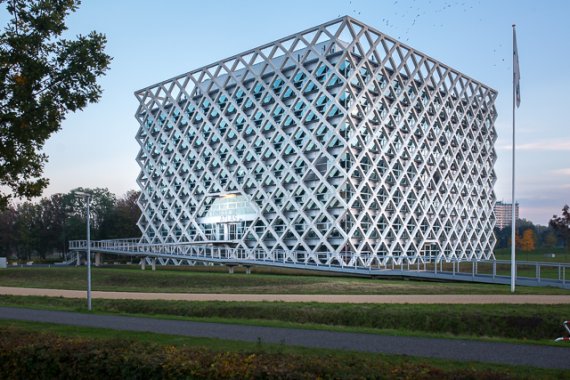The Wageningen research institutes currently do a lot of subsidized public-private research projects which need top-up funding. So there is a need for commercial contract research as well, so that Wageningen Research can invest in research itself. But what business models do you need to do that, wonders director of the Plant Sciences Group Ernst van den Ende. He is in the working group that is pondering Wageningen Research’s business model with the new strategic plan in mind (see last paragraph).
Wageningen researchers should protect more of their discoveries with patents, reckons Paul van Helvert, intellectual property manager at WUR. Patents fit into a research strategy in which you clearly offer your expertise on the research market. If that market requires protected knowledge, you should patent it. So you should know, says Van Helvert, what the needs are of the companies in your research field.
At present WUR applies for an average of 20 patents a year. With a more active patent policy, that number could be doubled, thinks Van Helvert. Most patents generate little direct income, but some are worth a lot. So you don’t generally get rich from patents, but they do protect your position and generate new assignments and turnover.
According to Ruud van den Bulk, business development manager at the Plant Sciences group, the institutes could also sell more apps. ‘Our researchers develop all sorts of models, in the fields of crop growth, climate and animal diseases, for example. Those models are protected by copyright, which means WUR owns the software and source code. You could exploit these models so that other people can use them for calculations. You could offer them in the form of an app, for example.’
Several examples of this already exist. One ex-worker at WUR has started exploiting crop growth models for greenhouse horticulture in his company B-Mex. He produces software for supporting decisions in horticulture on the basis of WUR computer models. And WUR has developed an app for arable farmers which predicts plant diseases and advises on how to control them. The app is a new business model for all the institutes, says Van den Bulk.
Theme: Businessmodel
WUR plans to present a new strategic plan this autumn. One of the 10 themes it will address is the business model of Wageningen research. Would you like to join the discussion? Then you can. The working group on this theme has not set dates yet, but you can already sign up with Jeanine van Straten, jeanine.vanderstraten@wur.nl.

